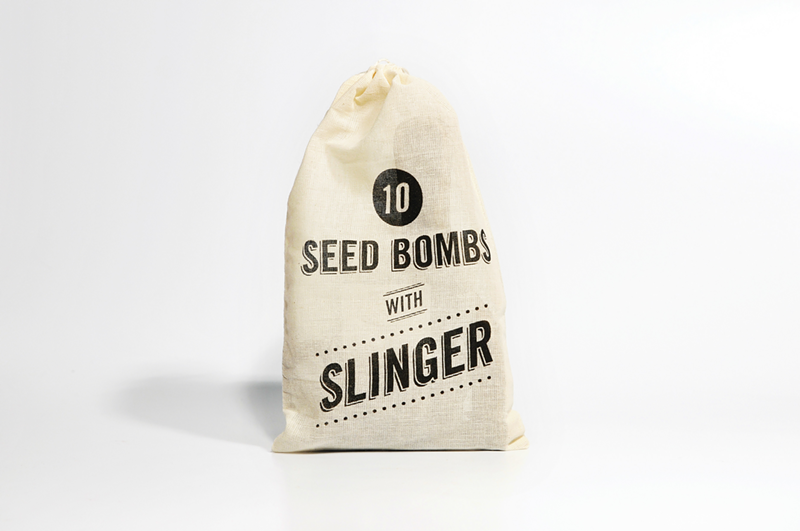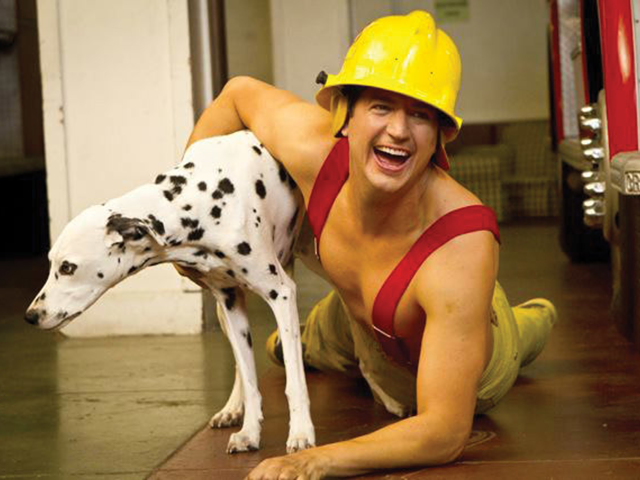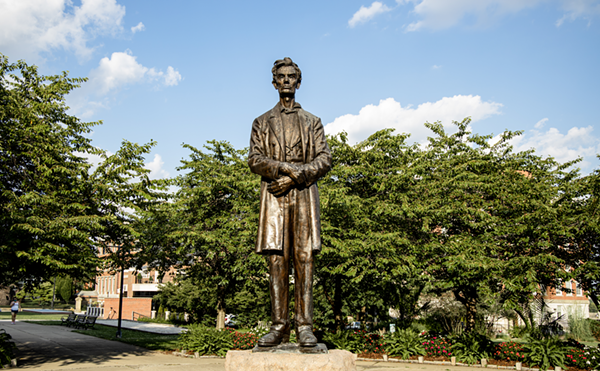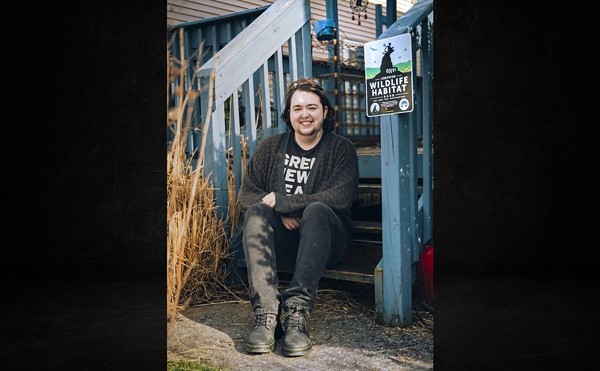There was no real plan when graphic designer Maya Drozdz quit her full-time design job in 2007 to “soul search.” She had recently relocated to Over-the-Rhine from Boston with her partner, Michael Stout, who was pursuing a master’s degree in Community Planning at the University of Cincinnati, and she was looking for new opportunities.
Drozdz, from Brooklyn, N.Y., and Stout, from Indiana, found OTR’s affordable workspaces, friendly networking opportunities and urban, walkable neighborhood incredibly inspiring. And with help from what Stout refers to as the neighborhood’s “low-bar” access to space and low cost of failure, he and Drozdz decided to create a Cincinnati-centric business — print and design studio VisuaLingual — out of their apartment while she applied for “real” jobs.
“VisuaLingual was founded on desperation,” Drozdz says, whose lack of job opportunities in the economic recession pushed their side project to the front seat.
Named after a freelance design endeavor the couple undertook during a stint in Boston, VisuaLingual became an OTR-based studio that reflects the duo’s interest in the concept of location.
“We have a shared interest in place,” Drozdz says, “like the architecture, history and overall ‘feel’ of an area. We try to understand what makes each place unique.”
Inspiration sprang from Cincinnati idiosyncrasies that caught the out-of-towners’ attention.
An introduction to “city chicken” — cubed pork meat on a wooden skewer — at Findlay Market fostered a pastel screenprint of the dish; the architectural orientation of OTR buildings influenced uniquely patterned gold, coral and blue throw pillows; and Stout’s 2008 graduation from UC reinforced this location fascination.
It was the ever-evolving OTR landscape of empty lots and abandoned Italianate buildings that inspired Stout to create what is arguably VisuaLingual’s most recognizable product — muslin vegetation bundles called “Seed Bombs.”
Seed bombing was a technique used in New York City during the 1970s guerilla gardening movement; bundles filled with seeds and fertilizer were illegally thrown into the city’s abandoned lots to beautify them. Today, VisuaLingual suggests using their Seed Bombs — clay balls filled with plant spores, worm castings and fertilizer which break and release seeds when thrown on the ground — for legal indoor planting or populating the hard-to-grow hills or valleys of personal gardens.
During her job search, Drozdz produced pieces like Seed Bombs to stay creative and build morale. Confident in her and Stout’s products after friends purchased individual pieces, she marketed the merchandise to local stores such as Park + Vine and MiCA 12/v, which then placed wholesale orders.
By the next year, Drozdz began to think outside the Gateway Quarter box. “This kind of neighborhood [Over-the-Rhine] exists in other cities, too,” Drozdz says, who contacted and pitched retailers in other Ohio metropolises, as well as Chicago and Detroit, increasing VisuaLingual’s orders for Seed Bombs.
Added markets prompted media coverage of Seed Bombs in outlets including Harper's Bazaar, Vogue, House Beautiful, Woman's Day and Design*Sponge, which in turn prompted a 2010 order from Anthropologie. Customers became interested in personalized Seed Bombs for weddings, baby and bridal showers, and even “green” companies such as the Sheraton Seattle Hotel and Brooklyn Botanic Garden wanted them as favors at different functions.
Last winter, Restoration Hardware requested VisuaLingual’s largest order — 11,000 Seed Bomb kits (each kit made of three Seed Bombs packages). That’s a 1,000-percent production increase from their first wholesale Seed Bomb order with Park + Vine in 2009. Back then, the couple rolled, printed and packaged in their OTR apartment before they moved to a nearby, rented production space and hired three part-time employees in 2011.
It was this adaptable inventory management that caught MSNBC’s attention last January, when they aired a feature on the growing small business called “Take Time to Grow” on the network’s Your Business program. Yet, it was creativity that Martha Stewart and the editors of her magazine noticed when they nominated VisuaLingual to the top 100 of some 12,000 applicants for their 2012 American Made Awards last October.
Today there are 12 different Seed Bomb varieties, including blends for different growing zones (Midwest versus East and West Coasts) and edible varieties for gardeners (calendula, arugula) and animals (catnip, grains). And the financial stability that Seed Bombs bring VisuaLingual allows them to produce more artistic and limited additions for their line of apparel, housewares and prints. Products include minimalist Ohio River coasters made of milled Corian, hand-pulled Cincinnati print tea towels and neckties with graphic representations of Cincinnati’s urban core.
VisuaLingual sells their 30 products to about 100 locations throughout the U.S., including nine national retailers such as Anthropologie, Williams-Sonoma and West Elm, as well as local outlets such as Fabricate and the Contemporary Arts Center.
This combination of artistry and business is what makes their company such a “happy accident,” says Stout. And Drozdz agrees: “I have a fantasy of living above the store,” she says. “I don’t want a black and white line between work and fun.”
Shop VISUALINGUAL’s array of products at visualingual.com.






